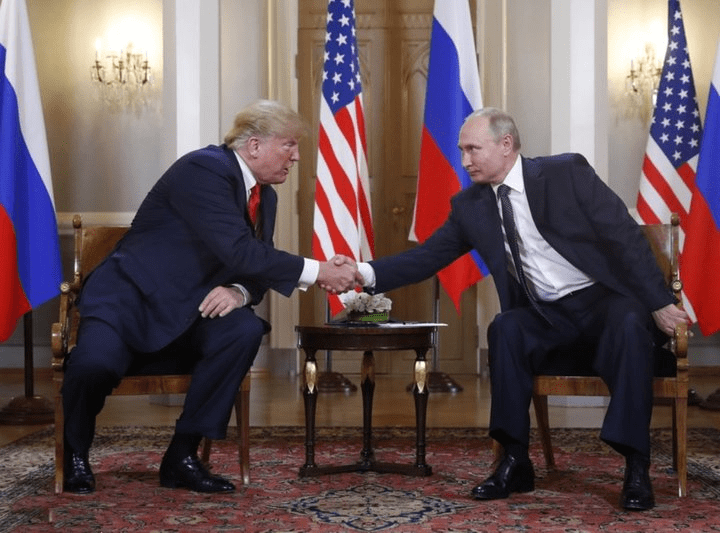The originally globally watched 'Trump-Putin one-on-one closed-door meeting' ended in an unexpected manner - this long-awaited summit between the two leaders after six years not only temporarily expanded to a three-on-three discussion but also rushed to a close just three hours later, with even the scheduled working lunch being canceled. Putin's special plane almost immediately took off for return, and Trump hurried back to Washington. This meeting, which was hoped to be a 'breakthrough', was filled with tension from the very beginning.
According to the initial agenda, Trump and Putin were supposed to have a 90-minute private meeting with no aides present, allowing the two 'strong presidents' to address core issues directly. However, just an hour before the meeting began, the U.S. side suddenly proposed adjustments: Secretary of State Rubio and presidential envoy Witkoff would join, while the Russian side correspondingly sent Foreign Minister Lavrov and presidential aide Ushakov. This change was interpreted by Moscow as a 'lack of sincerity from the U.S. side', as Rubio is known as a 'Russia hawk' who has publicly accused Putin of 'interfering in American affairs' multiple times, and his presence would undoubtedly tighten the atmosphere of dialogue.
Upon entering the meeting room, the confrontation between both sides was more direct than expected. According to sources close to the Russian side, Trump opened with a 'Ukraine ceasefire timetable', demanding concessions from the Russian side on energy cooperation in exchange for the U.S. easing some sanctions on Russia. Putin responded sharply, proposing the core demand of 'NATO halting eastward expansion', stating that 'if the U.S. continues to supply heavy weapons to Kyiv, all negotiations will lose meaning'. This core one-on-one consultation lasted only 40 minutes before expanding to a six-person meeting, shifting the topic from 'strategic mutual trust' to more specific 'resource exchange' - the U.S. focused on Russia's rare earth mining rights and Arctic route cooperation, while the Russian side demanded the lifting of SWIFT restrictions on Russian financial institutions.
The decision to cancel lunch came unexpectedly. An anonymous White House official revealed that Trump hinted multiple times during the talks that 'business cooperation could be exchanged for political compromise', but Rubio interrupted him on the spot, stating bluntly that 'deals with Russia require Congressional approval', leading to a deadlock. Putin seemed to have anticipated this situation, as he breezed through the press conference with a mere 'the talks were constructive', heading straight to the airport. This 'non-combative' stance not only avoided being passive on American soil but also hinted at the deeper meaning of 'subsequent negotiations need to be discussed in Moscow' - after all, for Trump, who approaches negotiations with a 'business mindset', Putin clearly came prepared with a more specific 'exchange list'.
It is notable that the interrupted one-on-one negotiations were always shadowed by Ukraine. During the talks, Zelensky publicly stated his 'opposition to any agreements bypassing Kyiv', while the EU conveyed through Rubio that 'any easing of sanctions requires the consensus of all member states'. Trump attempted to find a balance between 'smoothing relations with Russia' and 'calming allies', while Putin seized the opportunity to reinforce the narrative that 'problem-solving must involve the Russian side'. Their seemingly brief confrontation was, in fact, a covert struggle for dominance in the future geopolitical landscape.
Now Putin has returned to Moscow with the meeting minutes, while Trump faces skepticism from domestic hawks. This one-on-one dialogue, which did not go as planned, is better described as the beginning of an 'escalation of the game' rather than a 'negotiation breakdown' - if they meet again in Moscow, it will likely be Putin's turn to set the stage.
